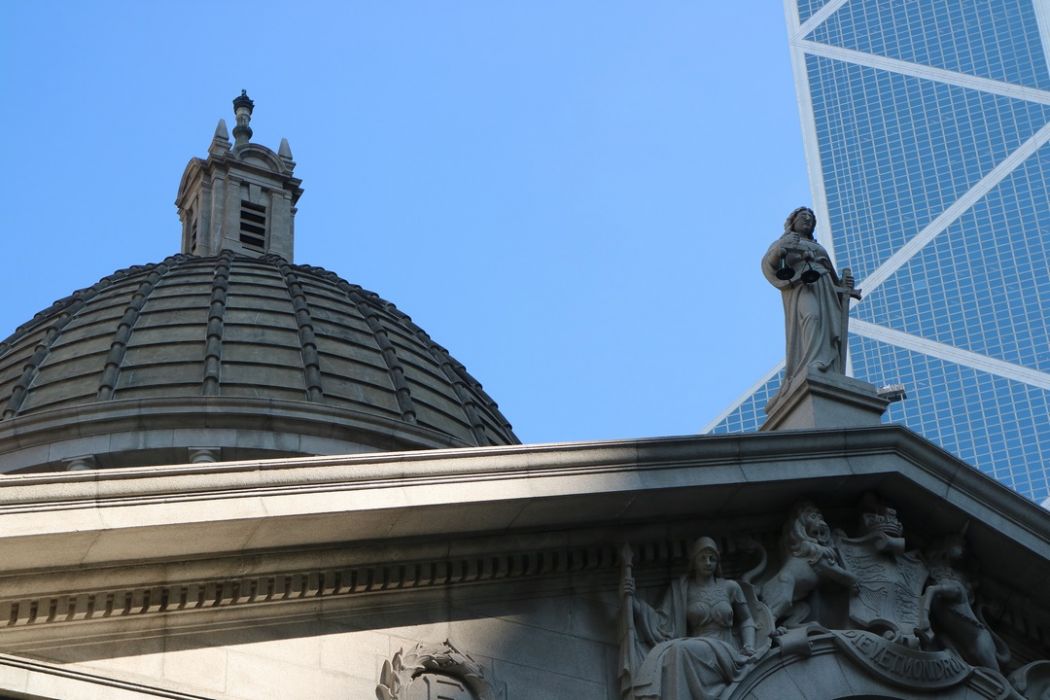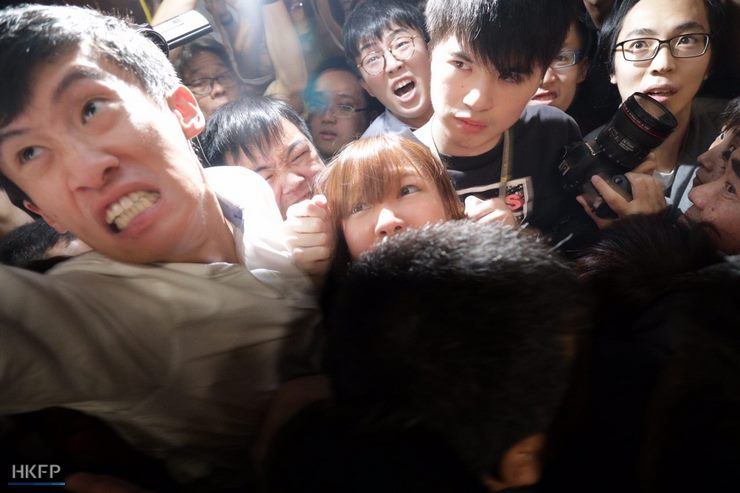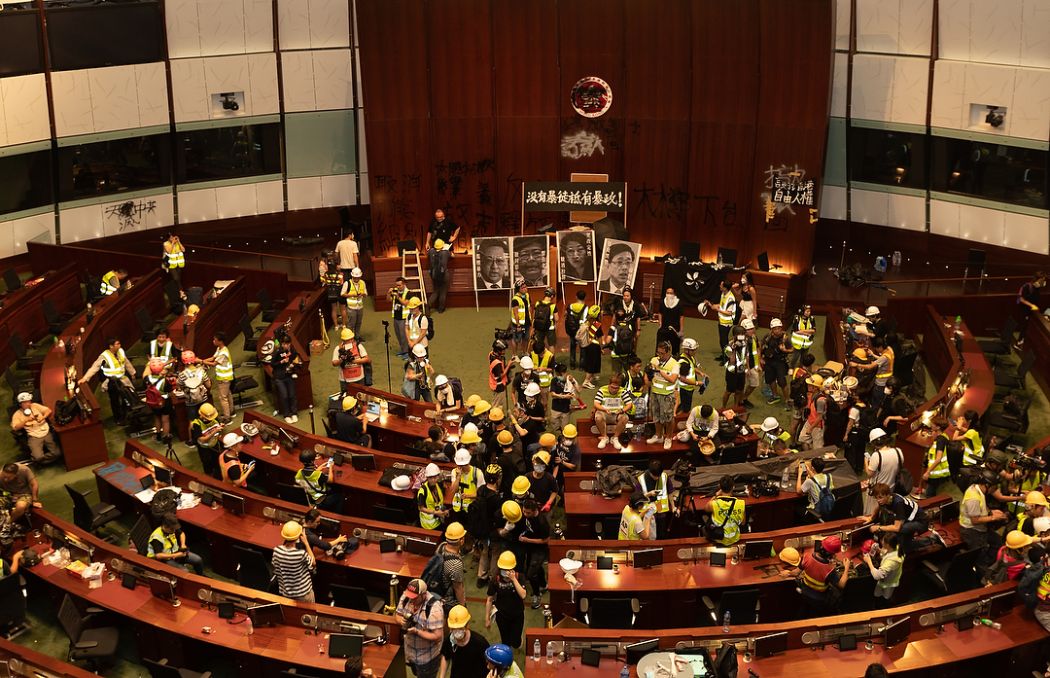The rule of law holds a very special place in Hong Kong’s imagination and identity. Hailed as a key core value of Hong Kong, the rule of law is one of the few principles that appeals equally to the establishment and the opposition.
In recent years, both sides have warned of the rule of law’s potential decline, but for different reasons. Anti-establishment figures fear a politicisation of the judiciary that would result in the legal system being used to quell dissent and fulfil the government’s authoritarian objectives.

Pro-establishment figures, on the contrary, believe it is dissent – particularly in the form of civil disobedience – that threatens the rule of law. Hence the need to punish offenders severely.
But what is the rule of law anyway? In the words of the Department of Justice: “[the rule of law’s] principal meaning is that the power of the government and all of its servants shall be derived from [the] law as expressed in legislation and the judicial decisions made by independent courts.”
Furthermore, “Legality and equality before the law are two fundamental facets of the rule of law,” together with “rules which restrict discretionary power.” This is a standard, but an overly formalistic and convenient definition of the rule of law.
It is not the idea of judicial independence that I seek to challenge here; I trust that Hong Kong courts, while perhaps displaying a conservative bias, have so far made decisions largely independently from other branches of the government. I also do not think that some people in Hong Kong, be it tycoons or government officials, are technically above the law.
But I think at least two more criteria need to be included in our assessment of the rule of law.

The first one is that government executives should refrain from—or exercise great restraint in—using the law to achieve political ends. After all, a common approach to conceptualising the rule of law consists in contrasting it with China’s rule by law system, where the law is applied arbitrarily to fulfil political purposes.
The second criterion is that the lawmaking process must be fair and conducive to just law. This implies that lawmakers should be selected through free and fair elections.
If the law is “expressed in legislation,” but the legislative system is severely flawed—perhaps resulting in laws that disproportionately enshrine narrow elitist interests to the detriment of wider public interests—the rule of law might merely end up enforcing an unjust and institutionally corrupt system.

Take the Basic Law, Hong Kong’s constitution. The Basic Law was drafted in the 1980s by a committee dominated by economic elites and other pro-authoritarianism figures under the auspices of the National People’s Congress—the technically unelected legislature of a totalitarian country that itself doesn’t uphold the rule of law.
While the Basic Law does uphold some fundamental basic human rights and freedoms, many articles were meant to fulfil the political purpose of strengthening the authoritarian, colonial and madly capitalistic system in place.
Skewed electoral rules ensure that pro-democracy lawmakers remain confined to everlasting minority status in the legislature (mainly in Geographical Constituencies), while coopted economic elites who already hold a tremendous power of influence over government and society are endowed with lawmaking powers through Functional Constituencies.
Although the courts have maintained their independence rather well, there has been an unhealthy trend in the executive using the law and legalistic arguments as threats and means to suppress the opposition, squash dissent and breach political rights.
The controversial Public Order Ordinance—an old British colonial law—is a timely example. By labelling disturbances as riots, the government is signalling that the prosecution may seek rioting charges for offenders, which under Hong Kong law can be punished by up to ten years in jail upon conviction.

Although the government is right in saying that the ultimate ruling will be made by independent courts in accordance with the rule of law, this argument is disingenuous. By seeking the harshest possible charge for an escalation in political actions that emanate from the government’s refusal to reform itself, the government is already (mis)using the law as a tool to fulfil its own political ends, by the same token damaging the rule of law.
The same goes for many post-Handover laws. Article 1 of the Basic Law, which states that Hong Kong “is an inalienable part of the People’s Republic of China,” has been used in a very dubious and arbitrary manner to bar pro-independence candidates from participating in the election process.
The planned extradition and national anthem bills are other examples of laws that would be so unpopular and detrimental to the public interest that no politician in their right mind would have dared to propose them in a moderately democratic system.
Had it not been for the efforts of institutionally marginalised democrats, the millions who took to the streets on different occasions, and those who stood on the frontline, the government would soon be extraditing people to China “in accordance with the law.” Soon, Hong Kong people caught disrespecting the national anthem that is being forced on them may be handed jail sentences “in accordance with the law.”

Government officials have been punctuating their legal threats and legalistic arguments with their platitudinous “in accordance with the law.” But perhaps what this phrase really means is “in accordance with the will of the mighty few unfairly endowed with lawmaking powers.”
The bottom line is, the Basic Law, together with the political system it provides the legal basis for, is seriously flawed and only has limited legitimacy. And if the main source of law and the lawmaking system are devoid of legitimacy, the rule of law loses its value as a legitimating formula.
There is no democracy without the rule of law. But there is also no rule of law without democracy.
